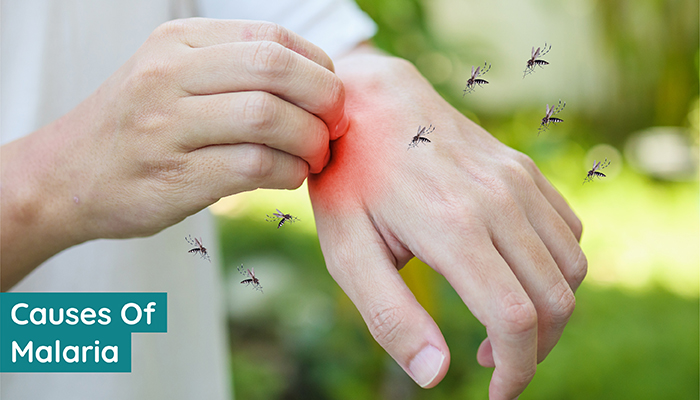Malaria is so prevalent that by now you may have contracted it in the past or heard of someone you know catching malaria. While malaria disease occurs frequently, very few know exactly what is it, let alone the fact that there are several types of malaria. However, in order to protect yourself and ensure that you can catch symptoms and get treated you should have a basic understanding of the different types of malaria. Here are details about the types of malaria and their symptoms.
What is Malaria?
Malaria Disease is an acute febrile illness, which means that the symptoms of this illness set in rapidly. It is caused by Plasmodium parasites which are spread across people via bites administered by female Anopheles mosquitoes. Basically, female mosquitoes tend to bite human beings and inadvertently spread the parasites responsible for causing malaria disease. While there are five types of malaria parasite species that cause malaria amongst humans, two of these species pose as the greatest threat; P. falciparum and P. vivax. The former of the two types of malaria parasites is more commonly found on the continent of Africa and the latter is dominant in sub-Saharan Africa. The initial symptoms of malaria disease are fever, headache, chills, and so on. These symptoms appear 10-15 days after the infected mosquito bite that triggered the infection. While the symptoms are mild and challenging to identify during the early stages, if left untreated they can worsen to a severity that can cause death within 24 hours.What are the Different Types of Malaria?
To seek timely medical assistance and get the treatment required, it is essential to know more about the types of malaria and their symptoms. The five species of malaria-causing parasites are as follows: (1) Plasmodium falciparum, (2) Plasmodium knowlesi, (3) Plasmodium ovale, (4) Plasmodium malariae, and (5) Plasmodium vivax. Out of these five malaria types, a few are more prevalent than others. Additionally, falciparum malaria can be potentially life-threatening. Patients that are infected with that particular malaria type can go on to develop liver and kidney failure, convulsions and slip into a coma. On the other hand, malaria types like P. vivax and P. ovale are generally less severe. However, these malaria type-causing parasites can lie dormant in the liver for several months. They can make a reappearance with a resurgence of symptoms after numerous months or even years. In India, the following types of malaria parasites infect humans:- Plasmodium vivax (Pv): It is a protozoal parasite and a human pathogen, predominantly found in India and spread globally. Pv causes nearly 60 per cent of malaria cases in India. Although the illness is prominent, it seldom causes any severe issues.
- Plasmodium falciparum (Pf): The malaria species is severe, accounting for a large number of malaria-related fatalities. It is predominant in India and also found in South America, Africa, and Southeast Asia.
What are the Symptoms of a Malaria Infection?
To catch a malaria infection, you can keep an eye out for these symptoms:- Fever, which is the most common symptom
- Chills
- Sweats
- Headache
- Fatigue
- Vomiting and nausea
- Body aches
- Feeling ill or sick


